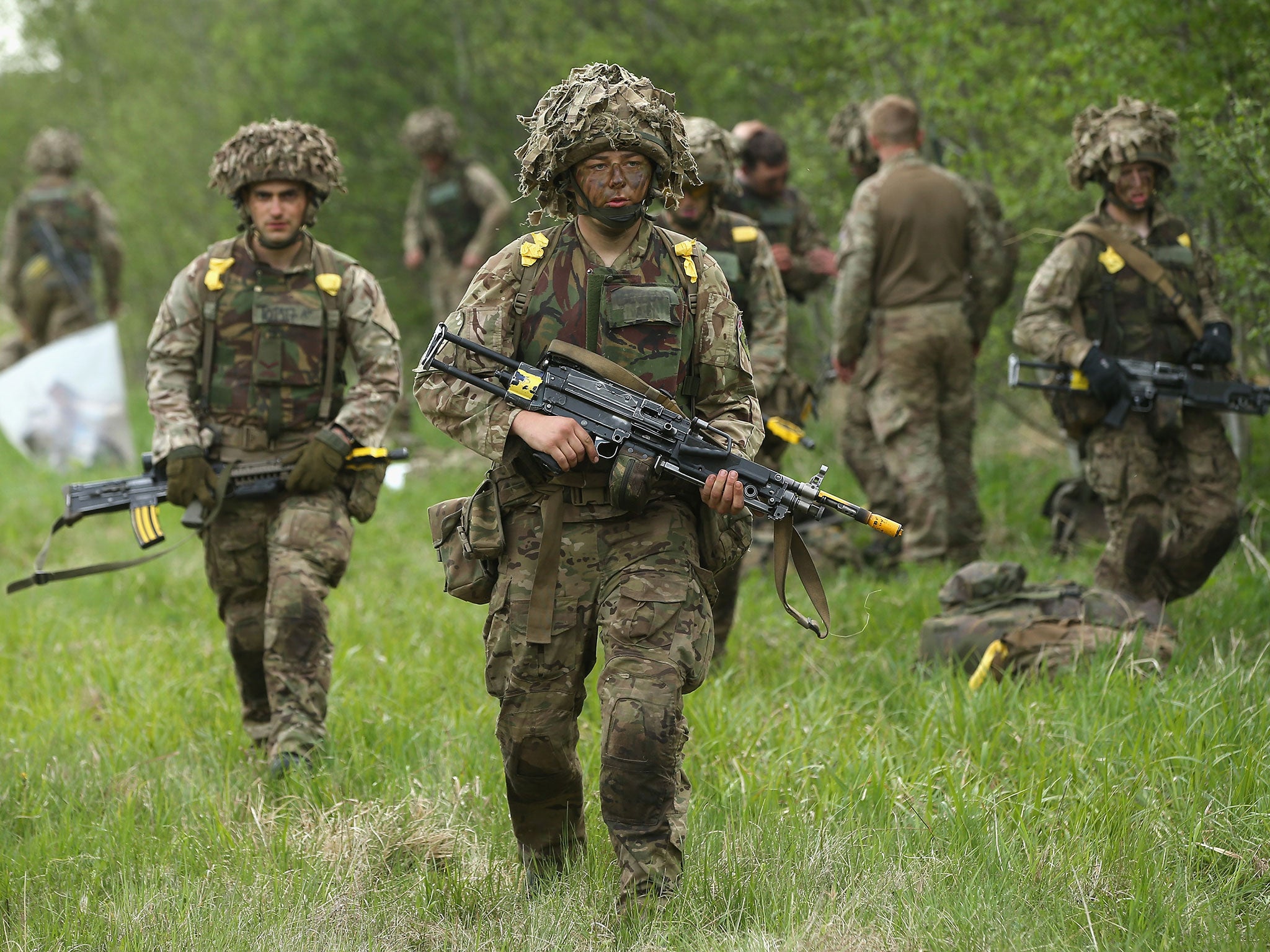Britain to deploy long range missiles to Estonia as Russian threat looms
800 British troops will be stationed in Estonia next year as part of a 15-nation effort to defend the Baltic states

Your support helps us to tell the story
From reproductive rights to climate change to Big Tech, The Independent is on the ground when the story is developing. Whether it's investigating the financials of Elon Musk's pro-Trump PAC or producing our latest documentary, 'The A Word', which shines a light on the American women fighting for reproductive rights, we know how important it is to parse out the facts from the messaging.
At such a critical moment in US history, we need reporters on the ground. Your donation allows us to keep sending journalists to speak to both sides of the story.
The Independent is trusted by Americans across the entire political spectrum. And unlike many other quality news outlets, we choose not to lock Americans out of our reporting and analysis with paywalls. We believe quality journalism should be available to everyone, paid for by those who can afford it.
Your support makes all the difference.Britain will begin the process of moving high-precision long-range missiles to Estonia next year amid fears Russian President Vladimir Putin could be making plans to invade the country.
The rockets will form part of a NATO-led operation to defend the Baltic states for the first time since the Cold War.
Approximately 800 British troops will be stationed in Estonia next year as part of a 15-nation effort which includes American, French and Danish soldiers, according to the Mail on Sunday.
The 200lb long-range rockets, known as Guided Multiple Launch Rocket Systems (GMLRS), can fire up to 12 missiles per minute, and can blow up a target over a range of 45 miles.
The warheads are fitted with GPS which allows them to seek out targets from a distance.
The missiles have already been used in a warzone. From 2007, they were deployed in Afghanistan to target Taliban bunkers, with a total of 410 missiles being fired at tunnel networks in Helmand Province.
The GMLRS systems will be used alongside drones, RAF jets and tanks.
However, former British Army commander General Sir Richard Shirreff said he believed they would not be sufficient to curb Russia’s advancement.
“Unless it is a permanent force then it is not credible. The 800-strong UK deployment is a start, but just that. I would also like to see Britain taking the lead in the protection of the Baltic States, in particular after Brexit. NATO as a whole must make a statement that it is willing and capable of defending these countries,” he told the Mail on Sunday.
“I fear that unless President Elect Trump reaffirms the US’s commitment to Article 5 that Russian will exploit this situation, absolutely certainly it will, and this could include Russian adventurism in the Baltic States. Because until now the one thing that has secured European defence since the formation of NATO has been the total certainty that whichever President is elected to the White House the US will come to the aid of another member of the pact.”
Donald Trump sparked alarm across Europe after he repeatedly questioned the effectiveness of NATO during his presidential campaign.
In July, Mr Trump said NATO was incapable of dealing with terrorism and that he would be willing to tell allies who did not reimburse the US for its protection: “Congratulations, you will be defending yourself."
Throughout his campaign to the White House, the Republican was famously pro-Russian, repeatedly praising the President Putin, calling him a strong leader and refusing to join US officials in accusing Moscow of leaking hacked Democratic campaign emails to undermine Hillary Clinton.
Join our commenting forum
Join thought-provoking conversations, follow other Independent readers and see their replies
Comments